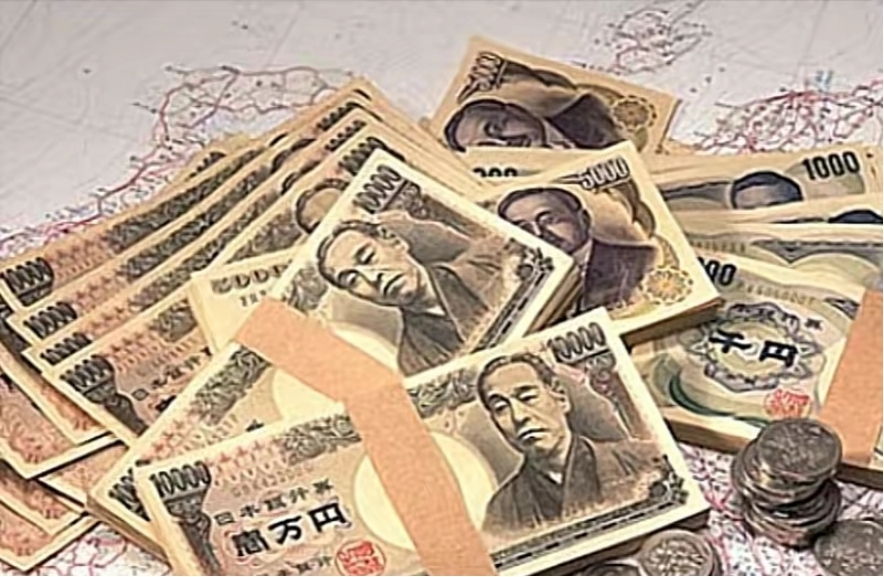
Recently, the exchange rate of the Japanese yen against the US dollar has continued to depreciate, and the US dollar against the Japanese yen has continuously fallen below the integer levels of 156, 157, and 158. International investors are betting heavily on the depreciation of the Japanese yen, and it is worth noting when the Japanese government will intervene in the exchange rate. The current indifference of the Japanese government is very intriguing.
Generally speaking, if the US dollar breaks through 155 against the Japanese yen, it was once seen by the market as an important barrier for the Japanese government to intervene. In just three years, the exchange rate of 1 US dollar for Japanese yen has risen from 105 to 158, which can increase the exchange rate by 50%. However, the Bank of Japan has no intention of intervening so far.
From the perspective of its impact on real life, the continuous depreciation of the Japanese yen has already had a significant impact on the daily lives of local residents in Japan. The most direct impact is the rise in commodity prices and a significant increase in living expenses. Young people in Japan have to return to the job market, otherwise it will not be easy to support themselves. Under the continuous depreciation of the Japanese exchange rate, household spending pressure in Japan continues to increase, and consumption enthusiasm has also decreased. The continuous depreciation of the Japanese yen has undoubtedly made businesses and households lacking effective asset allocation and risk management capabilities direct victims of the depreciation trend.
However, against the backdrop of the continuous depreciation of the Japanese yen, the Bank of Japan has remained stagnant, and the market's expected interest rate hike has once again failed. After announcing the results of the interest rate negotiations, Bank of Japan Governor Kazuo Ueda hardly expressed support for the yen at a press conference.
Shibata and Nana claimed that the central bank will closely monitor exchange rate fluctuations and their impact. Exchange rates are an important factor affecting inflation, and if they affect prices, exchange rates will be included in policy considerations. However, the depreciation of the yen has not yet had a significant impact on core prices, and the weak yen has a positive impact on demand.
He also pointed out, "If the trend of the yen has an undeniable impact on the economy and prices, it may become a reason for monetary adjustment policies. Currently, the weakness of the yen has not had a significant impact on potential inflation."
Perhaps, from the perspective of the Bank of Japan, the finally stimulated inflation can prompt the Japanese economy to enter a state of moderate recovery. Choosing to raise interest rates at this time may result in the previous efforts being in vain. When the Bank of Japan will raise interest rates remains a mystery.
The Japanese yen has hit a new low in 34 years and is also during Japan's spring break. Some Japanese people say that the continued depreciation of the yen is putting considerable pressure on their planned overseas travel plans. Local residents say they want to go on vacation abroad, but the depreciation of the yen is too severe now.
Some Japanese tourists even told reporters, "In order to save on food costs, sometimes we don't have breakfast and only have one breakfast. Sometimes we just eat fast food brought from Japan as breakfast. If the exchange rate of the Japanese yen against the US dollar is better, then our travel can be more comfortable." Look at this, this is the current situation of Japanese people: they can't even bear to eat breakfast.
For the public, the negative impact of the sharp decline in the Japanese yen should be viewed rationally. The fluctuation of currency exchange rates has a significant impact on the global economy. The shopping frenzy triggered by the sharp decline of the Japanese yen has to some extent boosted the Japanese economy, but also exposed some of the existing problems in the global economic system.

報告顯示,中國電力投資加速增長,預計2024年電網基建投資將超過5300億元。
近日,市場迎來了一則引人注目的消息:工業巨頭3M公司(MMM.N)在本周五公布了其季度業績報告,隨後股價飆升至近兩年來的
最近,外媒給OpenAI算了筆賬,今年可能要血虧50億美元。
近日,巴黎奧運會和世界鐵人三項協會聯合發布了一項重大決定,宣布因塞納河水質污染問題,原定於近期進行的奧運會鐵人三項首次下
當地時間7月18日,法國巴黎發生了一起令人震驚的持刀襲警事件。
近期,一則重大消息在國際舞臺上引起軒然大波,馬來西亞宣布加入金磚國家。
調查發現,互聯網和智能手機的使用幹擾了韓國近五分之一學生的生活。